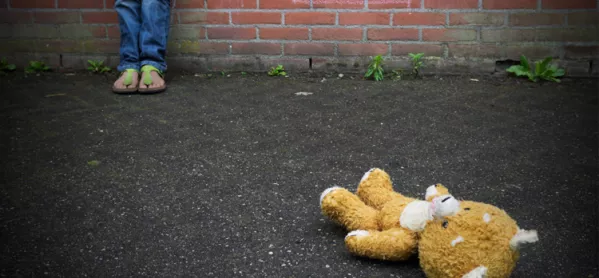The president of a Scottish teaching union is calling for action to stamp out “damaging” verbal abuse from pupils that is “often violent, personalised, sexualised, homophobic and sexist” and occasionally “sectarian and racist”.
The president of the Scottish Secondary Teachers’ Association (SSTA), Kevin Campbell, will today say that Scottish teachers are being asked to do “an impossible job”. However, of all the problems they face - from having to teach pupils sitting different qualifications in the same class to the “absolute nightmare” of implementing the new curriculum - the one that he identifies as the “top of all stress inducing factors” is verbal abuse.
Teachers are subject “to the most foul abuse on a daily basis, often more than once”, with the situation exacerbated by the fact that often no action is taken by senior school managers, Mr Campbell will say in his address to the SSTA annual congress in Crieff. In fact teachers are often made to feel “somehow or another [they are] to blame”, he says.
News editor’s take: ‘The abuse teachers are expected to put up with is simply obscene’
Quick read: Poem attacking zero-tolerance behaviour policies goes viral
Background: SSTA president Kevin Campbell speaking to Tes Scotland
Mr Campbell points the finger at the “nurture or cuddle culture” that has grown up in Scottish schools in recent years, which he says “has led to the situation where a teacher almost has no authority over their charges”.
The result, he argues, will be pupils with “a seriously distorted idea of the society they will emerge into”.
“In fact, we are creating for these children a complete fantasy,” he says.
In the outside world pupils will be held accountable for their actions “in the workplace, within their communities or in a court of law”, but they will not be prepared for that, believes Mr Campbell.
Mr Campbell - a biology teacher in Fife - is calling on school managers and council bosses to “empower our profession to take back control in our classrooms”.
He is expected to say: “To be subjected to this sort of language on a continuous basis is damaging. It’s damaging for morale, self-esteem and one’s health. I suspect, however, even more damaging is the lack of support staff can expect from their managers. The lack of action taken against such individuals or the perceived, sometimes open implication that somehow or another you were to blame for the situation only makes it worse. Simply put, children are not to be accountable for their actions.”
At the union’s annual congress, which takes place today and tomorrow, delegates are also due to debate a motion that states restorative practice is increasing teacher workload and is ineffective in improving pupil behaviour.
Restorative practice an the approach taken to behaviour management in many Scottish schools - is explained on the website of inspection and curriculum body, Education Scotland. It states that punishing pupils who misbehave can be “can be ineffective, dangerous, breed resentment and make situations worse”; instead, a restorative approach encourages pupils “to hear about and face up to the harm and distress they have caused” and repair the damage.
However, SSTA general secretary Seamus Searson told Tes Scotland that his union was concerned that teachers often neither had the time nor the training to implement the approach effectively.
In England, schools often take a harder line when it comes to discipline, but critics argue that the “zero tolerance” approach has also gone too far there.
A Tes investigation earlier this year revealed the extreme zero-tolerance approaches being taken in some academies where staff reported they were encouraged to shout aggressively at pupils as part of a “ritual humiliation” and “public shaming” to instil discipline .
In March, the NEU teaching union described zero-tolerance policies as “inhumane” and the delegates at its conference backed a motion calling for local authorities to have oversight over academies’ approach to behaviour.




